I have a JSON object:
{
""settings"": {
""general"": {
""database"": { ""type"": ""PostgreSql"" }
}
}
}
The absolute path of my JSON object would look like this: settings/general/database/type
I tried to get all the keys with the first solution of this question:
IList<string> keys = parent.Properties().Select(p => p.Name).ToList();
This didn't work for me. The keys list only contained the first key settings and hasn't got the other ones.
There is a path property which shows the path of the node you are in but it doesn't show the complete path of the JSON object.
How can I get the absolute path like in my example?
